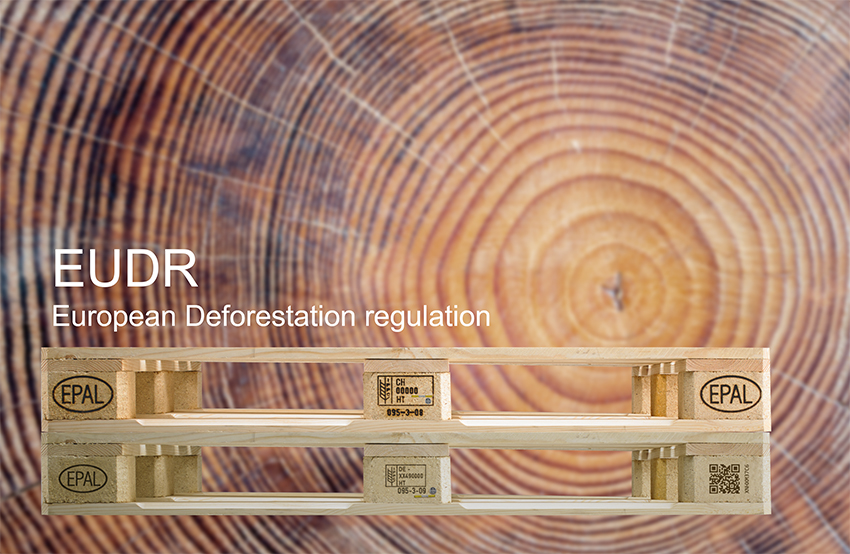EPAL supports the call to postpone the launch of the EUDR
EPAL supports the call to postpone the launch of the EUDR
The new "EU Regulation for Deforestation-Free Products" (EUDR) was already adopted on 31.05.2023 and came into force on 29.06.2023. However, the central provisions will only apply after the expiry of the 18-month transitional period from 30.12.2024. Only three months before this date, many questions remain unanswered, just as the digital platform for submitting due diligence declarations can only be used to a limited extent. EPAL, together with many other associations from industry and trade, is therefore calling for a postponement of the start of the EUDR.
The EUDR (European Deforestation Regulation) replaces the EU Timber Regulation (EUTR) in the area of trade in timber and timber products, which already sets high requirements for the sustainability and legality of timber and timber products imported into the EU. The EUDR is intended to prevent forests from being cleared or damaged for the production of agricultural and timber products. EPAL supports this goal, as the preservation of functioning forests through sustainable forestry is not only important for society and the environment, but is also the basis for the future use of wood for the production of EPAL pallets and other wood products. The economic use of wood makes an important contribution to sustainability and climate protection. For this reason, EPAL pallets may only be made from wood that comes from sustainable forestry and has been harvested in strict compliance with the legal provisions of the country of origin. The EUDR's primary goal is to stop deforestation in non-EU countries. Since the wood for EPAL pallets comes almost exclusively from Europe and is harvested in Europe in accordance with the EUTR and the high national legal standards, the requirements of the EUDR are already met in the production of EPAL pallets.
In order to achieve the objectives of the EUDR, users of timber and other relevant products will in future have to record where the wood or other products have been grown or produced. A comparison with older map material is used to check whether there was forest on the cultivated areas in the past or whether there is relevant forest damage. If this is the case, the product is not deforestation-free and may not be imported into the EU. If, on the other hand, there is no deforestation or forest damage, this is documented in a due diligence declaration and proven by a reference number.
The due diligence declaration and reference numbers are generated using a digital platform of the European Commission, the EU Information System. However, this is not yet available for general use, so that the large number of companies from all industries affected by the EUDR cannot yet test the platform. Likewise, the risk classification of the countries of origin has not yet been finalized and published, which determines the scope of companies' due diligence obligations. The EU Commission has also postponed the publication of urgently needed explanations on the application of the EUDR on several occasions.
Therefore, a postponement of the start of the application of the EUDR is now unavoidable.
Bernd Dörre, CEO of EPAL:
"The manufacturers and repairers of EPAL pallets are aware of the importance of responsible use of wood and forests. With the average 7-year use and exchange of EPAL pallets, the need for wood is significantly reduced compared to disposable pallets. In order to protect the environment and forests and to secure future timber resources, EPAL therefore supports the goals of the EUDR.
However, the achievement of these objectives requires that the application of the EU Information System is possible and can be tested by any company before the start of the application of the EUDR. We have been waiting since the beginning of 2024 and so far in vain for the EU Information System to be made available to all companies. The remaining three months will not be enough for all businesses, especially small and medium-sized enterprises, to adequately prepare for the application of the EUDR. For this reason, EPAL, together with many other associations, is calling for the start of the application of the EUDR to be postponed by at least one year. During this time, the EU Commission should also answer the numerous detailed questions about the application of the EUDR and simplify the application of the EUDR."

